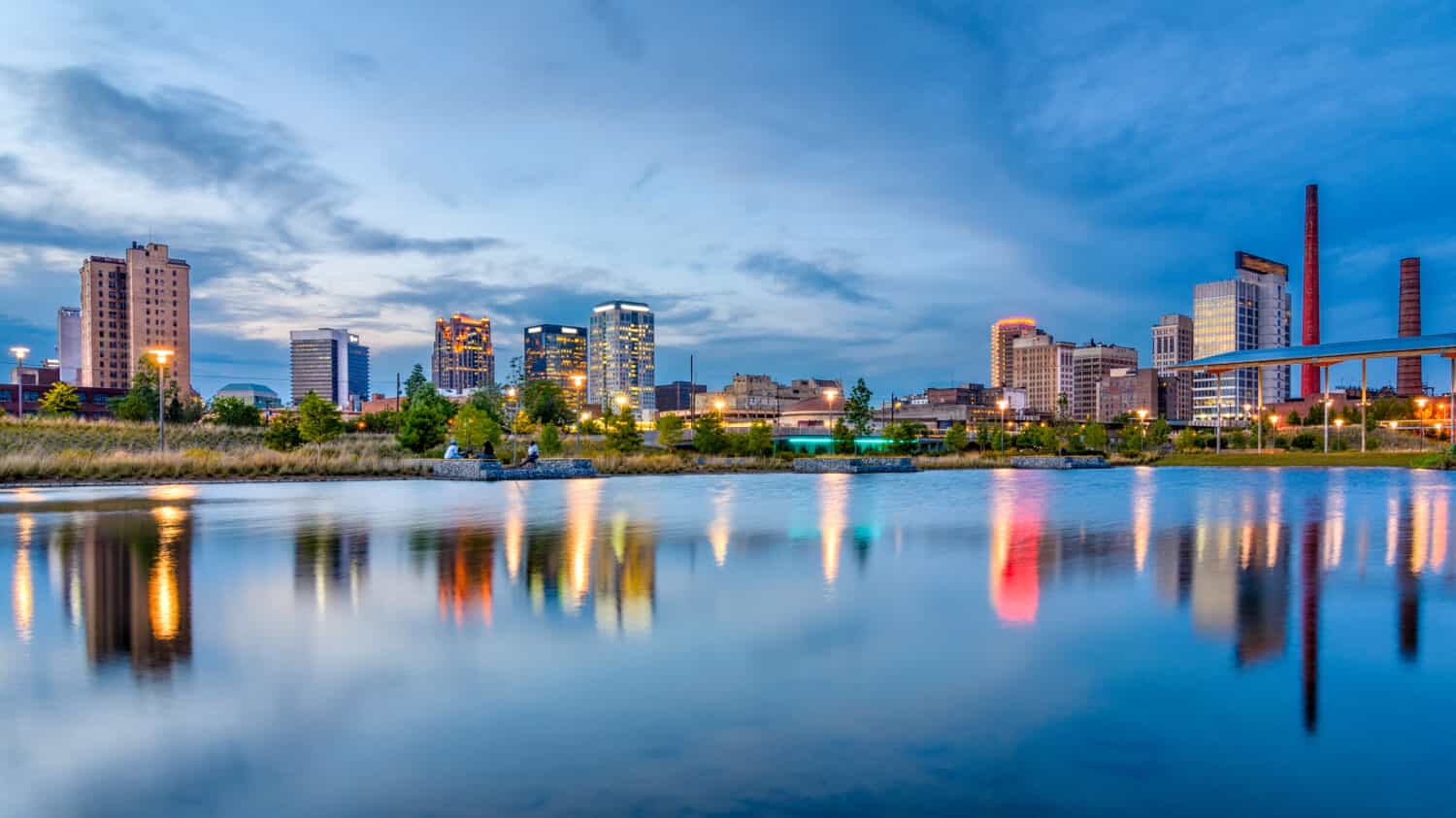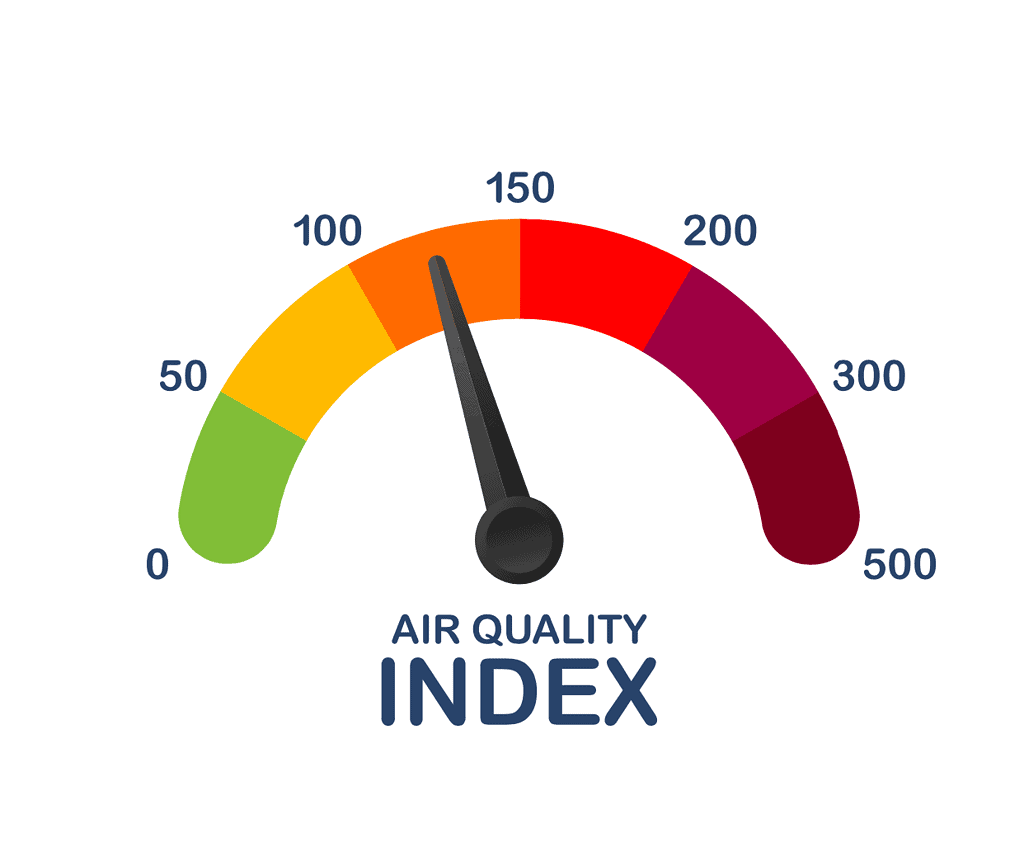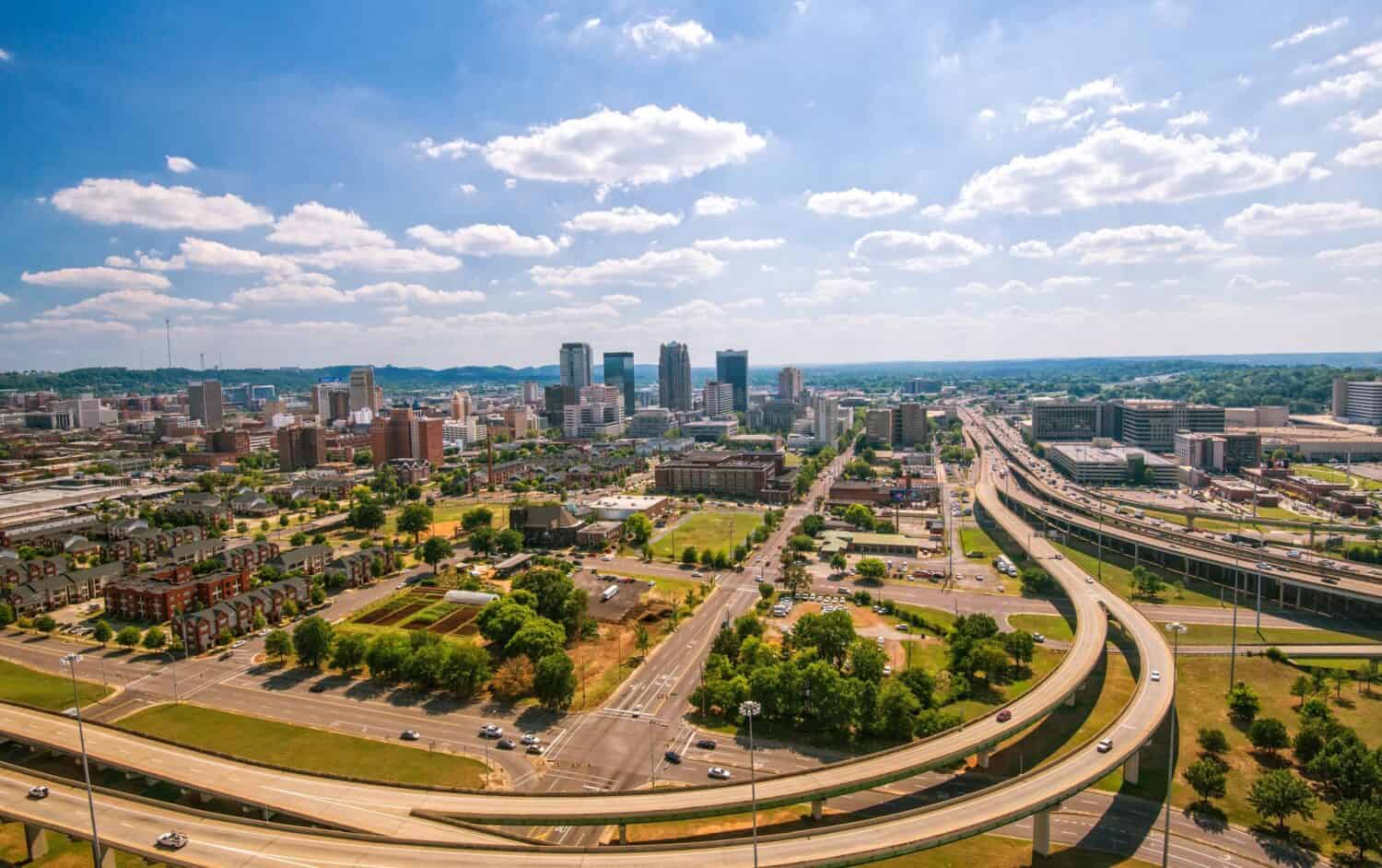Alabama’s air quality can vary depending on a variety of factors such as weather conditions, industrial and transportation activities, and other sources of air pollution. The Alabama Department of Environmental Management (ADEM) is responsible for monitoring the state’s air quality and enforcing regulations that help to protect public health and reduce harmful emissions.
Some cities in Alabama have historically had high levels of air pollution due to industrial activities and heavy traffic. However, air quality in Alabama has been improving in recent years due to increased regulations and efforts to reduce emissions from various sources.
Alabama residents can find real-time information on the state’s air quality by checking the Alabama Air Quality Index (AQI) which is updated regularly. In this article, we are going to explore the Alabama town with the worst air quality currently.
Discover the Alabama Town With the State’s Worst Air Quality

Birmingham, Alabama has the worst air quality in the state of Alabama.
©Sean Pavone/Shutterstock.com
According to various sources, Birmingham is often cited as the Alabama city with the worst air quality due to high levels of particulate matter and ground-level ozone. It’s important to note that air quality can change over time and can be impacted by a variety of factors, so it’s essential to check the most recent air quality reports and take appropriate actions to protect your health.
What Is The History Of The Air Quality In Birmingham Alabama?
The history of air quality in Birmingham, Alabama has been tumultuous. For most of the 20th century, the city was a hub of heavy industry, including steel production, mining, and manufacturing. As a result, the air quality was consistently poor, with high levels of pollutants like sulfur dioxide, nitrogen dioxide, and particulate matter.
In the 1970s and 1980s, efforts were made to clean up the air in Birmingham. The Alabama Air Pollution Control Commission was established in 1971, and in 1977 the city was designated a nonattainment area for sulfur dioxide under the Clean Air Act. This designation meant that the city had to take action to reduce its emissions of sulfur dioxide.
Over the next few decades, the city worked to improve its air quality, implementing new regulations and technologies to reduce emissions. The closure of a number of major industrial facilities in the 1990s and 2000s also helped to reduce air pollution in the city.
Despite these efforts, Birmingham still struggles with air pollution. According to the American Lung Association’s 2020 State of the Air report, Birmingham was ranked as the 14th most polluted city in the United States for year-round particle pollution. The city has also been designated as a nonattainment area for ozone pollution under the Clean Air Act.
Why Is The Air Quality In Birmingham Alabama So Bad?

Air quality index measurement
©DG-Studio/Shutterstock.com
There are multiple factors contributing to poor air quality in Birmingham, Alabama. These include:
Heavy industrial activity: Birmingham has a long history of heavy industry, including iron and steel manufacturing, coal production, and power generation. These activities release large amounts of pollutants such as sulfur dioxide, nitrogen oxides, and particulate matter into the air.
Vehicle emissions: Birmingham also has a high number of cars and trucks on the road, which contributes to air pollution through exhaust emissions.
Geography: the city is situated in a valley, surrounded by the Appalachian Mountains, which can trap pollutants in the air and exacerbate air pollution.
Weather patterns: Birmingham experiences frequent temperature inversions, where a layer of warm air traps pollutants close to the ground, making it difficult for them to disperse.
Wildfires: The city is also prone to wildfires, which can release large amounts of smoke and particulate matter into the air, further damaging air quality.
Where is Birmingham, Alabama, Located on a Map?
The city of Birmingham is located in the north-central region of Alabama. It is the seat of Jefferson County, the most populous county in the state. Birmingham is known as “the magic city” because it is the only place in the world with soil that contains all three necessary elements to produce iron: limestone, coal, and iron ore.
What Are The Health Risks Associated With Poor Air Quality?
Poor air quality can have adverse effects on both short-term and long-term health. Some potential health risks associated with exposure to poor air quality include:
Respiratory Problems: Air pollution can cause irritation and inflammation in the airways, leading to respiratory problems such as asthma, bronchitis, and other lung diseases.
Cardiovascular Problems: Long-term exposure to polluted air can increase the risk of heart attacks, strokes, and other cardiovascular diseases.
Cognitive Impairment: Air pollution can affect brain function and lead to cognitive impairment, memory loss, and shortened attention span.
Reproductive Health: Exposure to air pollutants can affect reproductive health and increase the risk of infertility, birth defects, and low birth weight in infants.
Cancer: Air pollution can increase the risk of lung cancer and other forms of cancer.
Premature Death: Long-term exposure to polluted air can increase the risk of premature death, particularly among people with preexisting health conditions.
Overall, poor air quality can have a significant impact on human health and well-being, and it’s essential to take measures to reduce exposure to polluted air and improve air quality.
What Measures Are Being Taken To Improve Air Quality In Birmingham?
Several measures are being taken to improve air quality in Birmingham, Alabama including:
- The introduction of a Clean Air Zone (CAZ) in the city center, which charges the most polluting vehicles to enter the zone.
- The replacement of older, more polluting buses with new, low-emission vehicles.
- The promotion of cycling and walking as alternative modes of transportation.
- The installation of electric vehicle charging points across the city.
- The development of a hydrogen refueling station in the city, promoting hydrogen fuel cell technology.
- The implementation of an air quality monitoring system to better understand the sources and levels of pollution in the city.
- The Clean Air Fund, which provides funding for local air quality improvement projects across the city.
- The implementation of tree planting programs and green infrastructure projects to absorb pollutants and reduce emissions.
- The promotion of public transport, such as the West Midlands Metro, and the expansion of train services in and out of the city.
- Working with businesses to promote sustainable practices and reduce emissions from industrial activities.
How Does Air Quality In Alabama Compare To Other States In The Us?

Alabama’s metro regions were the 12th worst in the nation for ozone pollution and the 14th worst for particle pollution.
©BJ Ray/Shutterstock.com
According to the latest report by the American Lung Association, the state of Alabama has poor air quality compared to other states in the US. In the State of the Air 2020 report, Alabama had three metro areas among the 25 most polluted in America: Birmingham-Hoover-Talladega, Huntsville-Decatur-Albertville, and Mobile-Daphne-Fairhope.
In terms of ozone pollution, Alabama’s metro areas ranked the 12th worst in the country, and its particle pollution ranked the 14th worst. High levels of pollution can contribute to asthma attacks, lung cancer, and other health problems. It is essential to take measures to reduce air pollution and protect public health in Alabama and other states.
How To Protect Yourself From Poor Air Quality In Birmingham, Alabama
Below are some general tips on how you can protect yourself from poor air quality in Birmingham, Alabama:
Stay informed: Check the air quality index regularly and stay informed about any potential air quality hazards in your area. Local news and weather websites can provide information about air quality.
Reduce outdoor activities: When air quality is poor, it’s best to stay indoors as much as possible. If you need to go outside, try to schedule your activities for times when air quality is better.
Wear protective gear: Wearing a mask or respirator can help filter out harmful particles from the air. If you have respiratory issues, consult with your doctor first before using a mask.
Purify indoor air: Installing air purifiers and filters can help improve indoor air quality, especially during poor air quality days.
Plan for emergencies: Be prepared for emergencies caused by poor air quality, such as wildfires or industrial accidents. Keep a disaster supply kit and have an evacuation plan in place.
Support air quality initiatives: Get involved in local air quality initiatives and advocate for policies that promote clean air.
Remember that poor air quality can have serious health effects, especially for vulnerable groups such as children, pregnant women, and people with respiratory conditions. Take these steps to protect yourself and your loved ones during times of poor air quality.
The photo featured at the top of this post is © Sean Pavone/Shutterstock.com
Thank you for reading! Have some feedback for us? Contact the AZ Animals editorial team.






